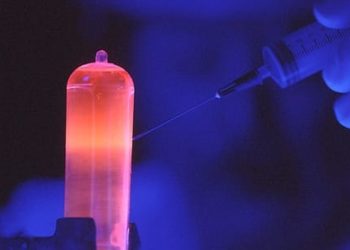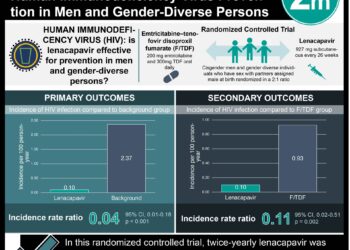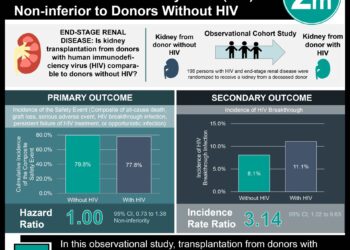Next-generation metagenomics sequencing may sleuth out hard-to-find viruses in the blood
1. Next-generation metagenomics detected Human Hepegivirus-1 (HhpgV-1) in a cohort of patients who inject drugs.
2. The clinical significance of detecting HHpgB-1 infection is currently unclear.
Evidence Rating Level: 2 (Good)
Study Rundown: Next-generation metagenomic sequencing (NGMS) is a technique that involves the sequencing of all the DNA or RNA in a tissue, following by interpretation of results with novel bioinformatics tools. As this technique is relatively new, many questions remain unanswered as to the capacity NGMS has for detection of pathogens and its sensitivity. The authors of this study aimed to assess NGMS by using the technique to explore the plasma virome of persons heavily exposed to bloodborne infections through long-term injection use. The authors of this study had already quantified 2 RNA viruses (HIV and HCV) in their samples. Therefore, the goal of this study was to determine whether NGMS would reveal additional viruses. In general, the authors detected HHpgV-1, a new infection, using this technology. Despite this finding, the main limitation of this study is that the medical importance of HHpgV-1 infection is unknown. Overall, the results of the study suggest that NGMS may be beneficial for detecting hard-to-find viruses in blood samples in the future.
Click to read the study in the Annals of Internal Medicine
Relevant Reading: New virus discovered in blood supply: Human hepegivirus-1 (HHpgV-1)
In-Depth [prospective cohort]: In this study, plasma samples were analyzed from patients co-infected with HIV and HCV enrolled. Using NGMS, a total of 600 million reads were generated. It was observed that HIV and HCV reads were only identified when samples contained more than 10 000 copies/mL, suggesting that NGMS is insensitive for viral detection when nucleic acid levels are low in concentration. In addition to HIV and HCV, a novel RNA virus, HHpgV-1, was also detected in 4 samples from 2 persons in the trial. The authors then assessed HHpgV-1 levels with quantitative PCR. Using this assay, HHpgV-1 infection was detection in 10.9% of the patient cohort.
Image: PD
©2017 2 Minute Medicine, Inc. All rights reserved. No works may be reproduced without expressed written consent from 2 Minute Medicine, Inc. Inquire about licensing here. No article should be construed as medical advice and is not intended as such by the authors or by 2 Minute Medicine, Inc.







